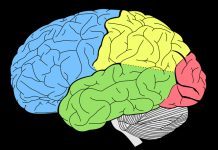Polyneuropathy is also known as peripheral neuropathy. The portion of your nervous system outside of your brain and spinal cord is called Peripheral Nervous System (PNS). It is essential for both relaying data from various regions of your body back to your brain and carrying out instructions from your brain to various body components. Polyneuropathy is a condition where many peripheral nerves are damaged. In polyneuropathy, several nerves in various body regions are affected at once. In cases of a mononeuropathy, just one nerve is damaged. Sensory neuropathy, motor neuropathy, and combined forms of polyneuropathy can all damage the nerves that control feeling, movement, and both. Additionally, it might have an impact on the autonomic nerves that regulate bodily processes including digestion, urination, blood pressure, and heart rate. Read along to know more about peripheral neuropathy and polyneuropathy diagnosis.
Signs and symptoms of polyneuropathy
Polyneuropathy can produce a variety of symptoms depending on the nerves that is getting affected.
- Tingling or numbness
- Trouble moving one’s hands, feet, legs, or arms
- Greater pain (such as burning, stabbing, freezing, or shooting pains)
- Sleep issues brought on by night time pain high sensitivity to touch and an inability to detect temperature variations
- Changes to the skin, hair, or nails increased occurrences of falling due to a lack of coordination
- Leg and foot ulcers
- Infected skin and nails
- Muscular tremor
- Muscle twitching
- Intolerance to heat
- Uncommon sweating
- Issues with the bladder or incontinence
- Digestion issues
- Abnormality in the blood pressure or pulse
- Difficulties swallowing or eating, and difficulty breathing
- Inadequate coordination
Conditions that can cause Peripheral neuropathy
- Diabetes, vascular disorders, trauma, autoimmune disorders, liver disorders, hypothyroidism, tumors that interfere with the nerves both cancerous and benign, myeloma, lymphoma, and monoclonal gammopathy.
- Numerous medications, including several HIV medications, some anti-seizure drugs, and some antibiotics, can result in neuropathy. Peripheral nerves can be harmed by several medical procedures, such as chemotherapy and radiation for cancer. The nerve function may also be impacted by exposure to hazardous substances such as solvents, heavy metals (such as lead and mercury), and industrial chemicals.
- Vitamins such as E, B1, B6, B12, and niacin are crucial for nerve function. Lack of these vitamins can cause peripheral neuropathy.
- Unlimited alcohol intake can destroy all the essential nutrients like thiamine which is important for nerve function. Alcohol abuse can also interfere with diet and a healthy lifestyle.
- Charcot-Marie-Tooth (CMT) disease is a hereditary disorder that causes nervous weakness. It is also commonly known as hereditary motor or sensory neuropathy.
Can high blood pressure cause neuropathy?
Yes, high blood pressure can cause peripheral neuropathy. Vascular and blood problems decrease the oxygen supply to the peripheral nervous system which can lead to nervous weakness.
What is the treatment for polyneuropathy?
A health care provider will first examine your medical history and later suggests test such as blood test, imaging test, nerve function test, nerve biopsy, and skin biopsy. The polyneuropathy diagnosis includes CT or MRI scan that detects the damaged nerves. A health care provider may suggest treatments, therapies, and medications according to a patient’s needs.

















